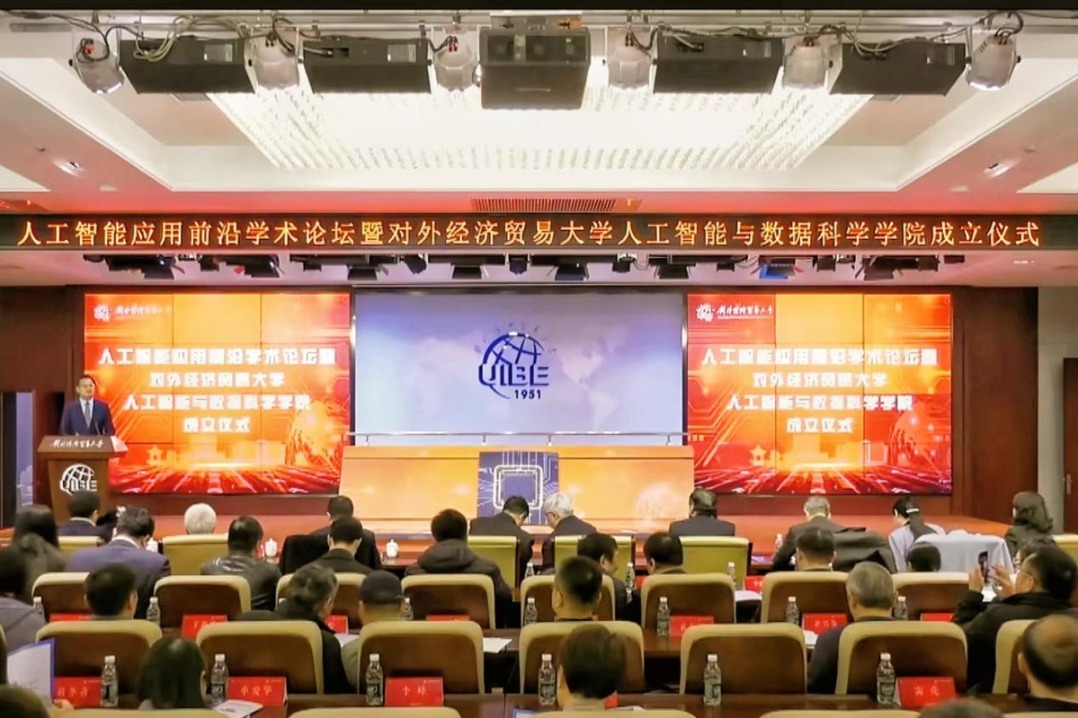The University of International Business and Economics (UIBE) has taken a significant step in advancing its technological education by launching its new School of Artificial Intelligence and Data Science on November 21, 2025. This initiative marks a strategic realignment aimed at addressing the evolving landscape of technology and the rising demand for interdisciplinary talent.
President Zhao Zhongxiu emphasized that the establishment of this new school is not merely an upgrade of UIBE’s long-standing School of Information Technology and Management but a comprehensive effort to align with national priorities in the digital era. The school will operate under a dual focus on both artificial intelligence and data science, integrating the university’s existing strengths in fields such as economics, management, law, and the humanities.
Fostering Interdisciplinary Talent
According to Zhao, the mission of the new school is to nurture globally minded and innovation-driven talent. The curriculum will not only cover traditional AI and data science elements but also delve into vital areas such as AI governance, computational economics, and intelligent management. This interdisciplinary approach reflects the university’s commitment to preparing students for the complexities of the modern workforce.
The initiative also aims to enhance research collaboration, establishing partnerships with leading universities, enterprises, and government departments. This collaboration is designed to strengthen UIBE’s contribution to national goals in education, science, and talent development.
As AI technology continues to reshape various sectors, the importance of educational institutions in adapting to these changes cannot be overstated. The launch of UIBE’s School of Artificial Intelligence and Data Science is a testament to the increasing recognition of AI’s role in shaping the future of industries and economies.
The need for interdisciplinary skills in AI and data science is particularly pressing in China, where rapid technological advancements are creating new job categories and altering existing ones. By integrating social sciences with technical studies, UIBE aims to create a unique platform that addresses both technological innovation and societal impact.
Implications for the Future
This strategic move by UIBE reflects a broader trend in higher education, particularly in regions where innovation in AI and data science is becoming a national priority. By focusing on comprehensive training that includes policy implications and practical applications, the new school is well-positioned to influence the future landscape of AI education.
As other institutions observe the unfolding developments at UIBE, it could inspire similar initiatives aimed at fostering an AI-savvy workforce capable of navigating the complexities of digital economies. The implications of this new educational model extend beyond the classroom, potentially shaping the future of AI governance and ethical considerations in technology.
Overall, the establishment of the School of Artificial Intelligence and Data Science at UIBE underscores the urgent need for educational frameworks that can effectively address the rapid evolution of technology and its implications on society. As the demand for skilled professionals in AI and data science grows, institutions like UIBE will play a pivotal role in shaping the next generation of leaders in this field.
See also Brussels Eases AI Regulations Amid Trump’s Push for Tech Industry Support
Brussels Eases AI Regulations Amid Trump’s Push for Tech Industry Support Data Discipline Crisis: 63% of AI Leaders Cite Poor Data Quality as Top Barrier
Data Discipline Crisis: 63% of AI Leaders Cite Poor Data Quality as Top Barrier Scott Wiener Launches California’s SB 53 AI Regulation, Aiming for Federal Standards
Scott Wiener Launches California’s SB 53 AI Regulation, Aiming for Federal Standards Italy Passes Landmark AI Law Aligning with EU Act, Boosting Demand for Employment Lawyers
Italy Passes Landmark AI Law Aligning with EU Act, Boosting Demand for Employment Lawyers Major Insurers AIG and Great American Exclude AI Coverage Amid Rising Risks
Major Insurers AIG and Great American Exclude AI Coverage Amid Rising Risks

























































